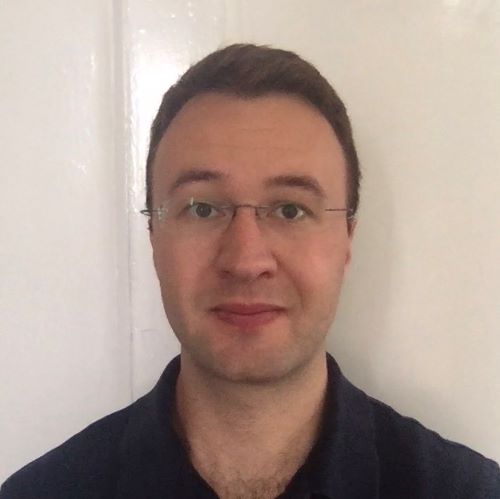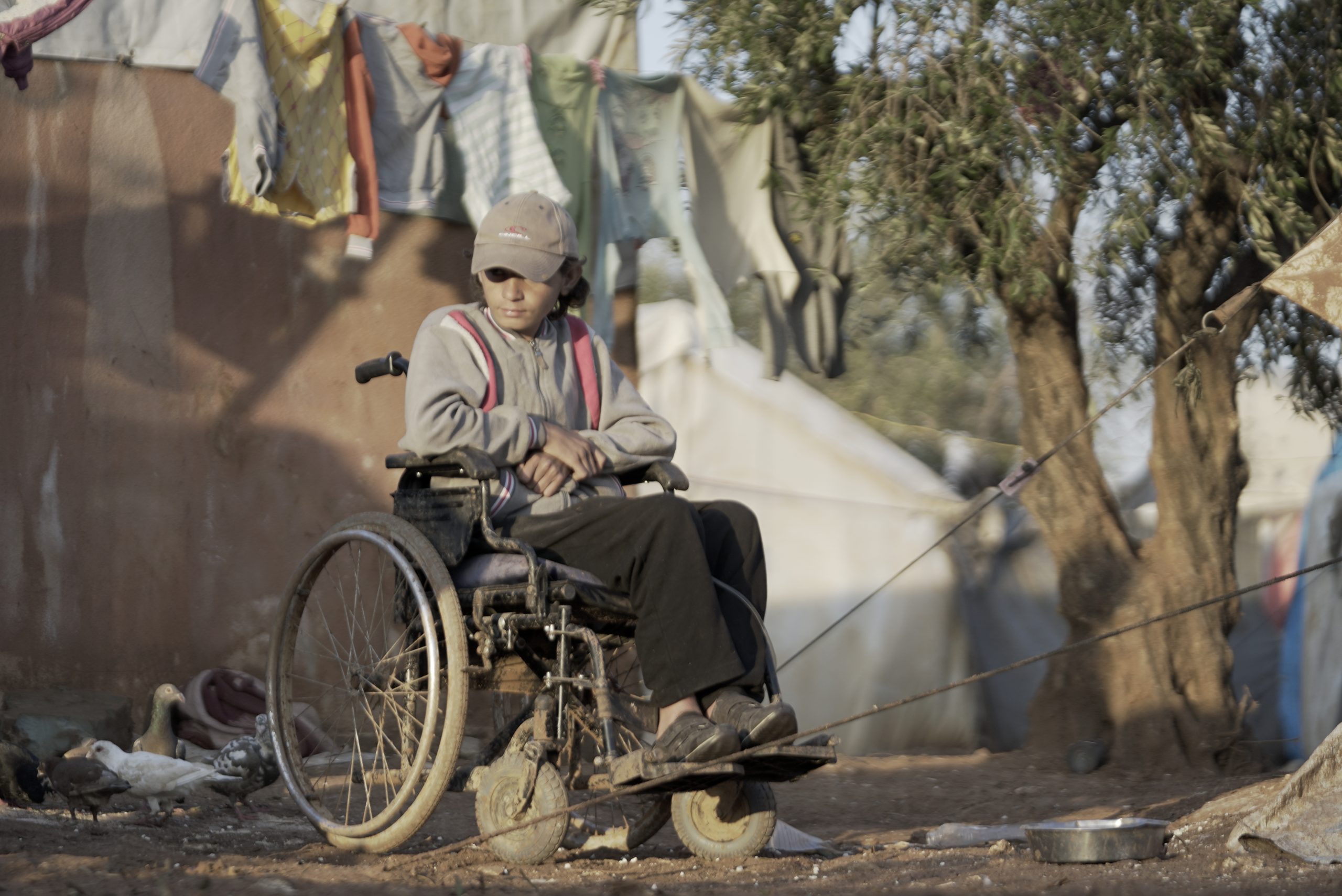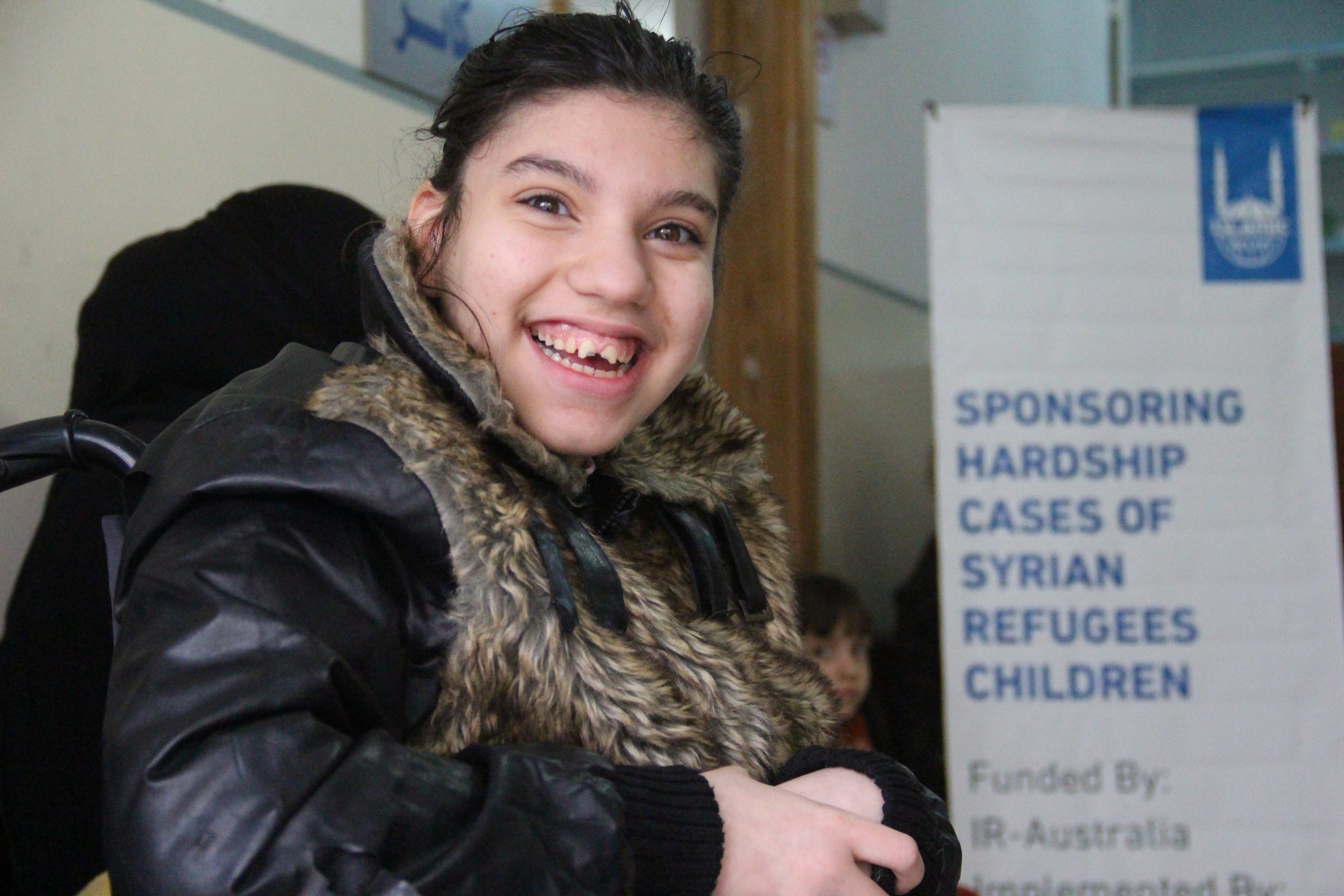Islamic Relief’s Protection and Inclusion Advisor on age and disability, Tom Palmer, explores how humanitarian actors can accelerate progress on inclusion following the publication of the new IASC Guidelines.

Few humanitarian workers these days, whether based at an international headquarters or on the frontline of a crisis, would disagree that including persons with disabilities in their programmes is essential.
The evidence is stark:
Persons with disabilities represent more than 15% of the world’s crisis-affected population. In disasters they are more likely to lose their lives. And in displaced populations, children with disabilities are at greater risk of abuse and neglect, while women with disabilities are more likely to experience sexual violence. The vast majority of persons with disabilities face barriers to accessing humanitarian assistance and protection.
No longer seen as the domain of specialist agencies, a wide range of humanitarian actors have committed to improving disability inclusion, for example, at the 2018 Global Disability Summit. Many have now gone further and pledged to implement the new Inter-Agency Standing Committee (IASC) Guidelines on inclusion of persons with disabilities in humanitarian action.
How do we turn commitments into systemic change?
The IASC guidelines are an important milestone. Fourteen years after the first edition of the IASC Gender Handbook, and thirteen since the IASC MHPSS Guidelines, we now have guidelines for disability inclusion from the highest level of humanitarian coordination.
They provide essential, practical tips for humanitarian workers building on existing frameworks such as the Core Humanitarian Standards, Sphere Handbook, and the Humanitarian Inclusion Standards, as well other resources on more specific topics, such as children with disabilities, shelter and disability data.
Is this a paradigm shift for the humanitarian sector?
The process for developing IASC Guidelines provides an important example to follow.
They are the first such guidelines to be developed with and by persons with disabilities alongside traditional humanitarian stakeholders. This represents an essential shift to recognising persons with disabilities as experts of their own experience and agents in decision-making rather than as passive ‘victims’ or ‘beneficiaries.’
Global guidelines are often dismissed as too abstract for humanitarian field staff. But while we shouldn’t claim that they provide all the answers, they do help us to ask the right questions and demand the necessary training, resources and technical support to develop our own solutions. They also help to normalise key concepts such as universal design and reasonable accommodation.
To broaden access to the guidelines, Islamic Relief is translating them into Arabic and a collection of case studies, published jointly by the International Disability Alliance, Humanity & Inclusion and CBM, provides practical examples to accompany the guidance.
How can we bridge the training gap?
All humanitarian programmes staff must improve their level of understanding about disability. They must learn how to respectfully interact with persons with disabilities; collect and use disability data; design activities to tackle stigma and discrimination; and collaborate with organisations of persons with disabilities (OPDs) – and much more besides.
But where do they go for training?
Not all organisations can invest in bespoke in-house training programmes, or outsource training to specialised agencies. So it’s critical to work together to develop and share materials – and crucially, to collaborate with persons with disabilities in this process. As such humanitarian agencies must invest in the capacity of OPDs and recruit staff which represent the diversity of the communities we support.
This work has begun with development of a module on humanitarian action within the CRPD-SDGs BRIDGE training initiative on the rights of persons with disabilities. Islamic Relief’s Maureen Nderitu participated as an observer to the module’s first edition and has used the knowledge she gained to forge connections with OPDs in Kenya.
What tools do we need to ensure disability inclusion?
Organisations are often challenged by the scarcity of tools to implement the Guidelines. One area where this has advanced in recent years is disability data collection.
Many agencies are now adopting the Washington Group Questions, which more accurately identify persons with disabilities. Integrated into survey tools, they enable us to disaggregate needs assessment data, for example, which is essential for planning a response.
However, the questions are sometimes misused to ‘diagnose’ health issues. To avoid such pitfalls, accompanying training materials include an introductory module to sensitise users on the human rights approach to disability.
The Washington Group on Disability Statistics is developing additional question sets to identify barriers in areas such as access to education and civic participation. This often overlooked aspect of disability data is essential for understanding how to adapt interventions for inclusion.
Are humanitarian agencies collaborating enough?
A number of humanitarian actors, including the International Organisation for Migration, are working together to test questions on barriers to humanitarian assistance.
To complement the advances on data collection, Islamic Relief is testing a tool for incorporating disability into intersectional analysis of needs, control of resources, and protection risks. To ensure uptake of these tools inter-agency collaboration is vital. For example, the International Rescue Committee (IRC) has established an external advisory group, including many OPDs, to develop disability-inclusive community feedback mechanisms.
Collaboration is also at the heart of the new global Reference Group on Inclusion of Persons with Disabilities in Humanitarian Action, established to coordinate development of further tools and resources to complement the IASC Guidelines. It’s essential that field staff from non-specialised actors are involved to ensure that any tools can be integrated into all the routine processes of humanitarian action and adapted for different contexts.
What else is needed to achieve real change?
Of course, delivering systemic reforms of humanitarian policies, processes and practices requires financial investment.
Budgeting for inclusion means earmarking funds for training, accessibility, reasonable accommodations and targeted activities. And to secure the necessary resources for inclusion, fundraisers have to be able to explain the cost and value of disability inclusion to donors.
But cash alone can’t deliver the sea change that’s needed.
Organisations must integrate inclusion minimum standards into accountability mechanisms at all organisational levels – including individual objectives.
And leaders must nurture an environment in which change can happen. We need safe spaces to share and discuss failings; encouragement to seek opinions and innovation from outside the sector; and incentives to prioritise collaboration over competition as well as learning over recognition.
In my next blog, I’ll examine the ways in which Islamic Relief is contributing to developments on disability inclusion externally, and striving for systemic change internally, to deliver on inclusion of persons with disabilities in humanitarian action.












